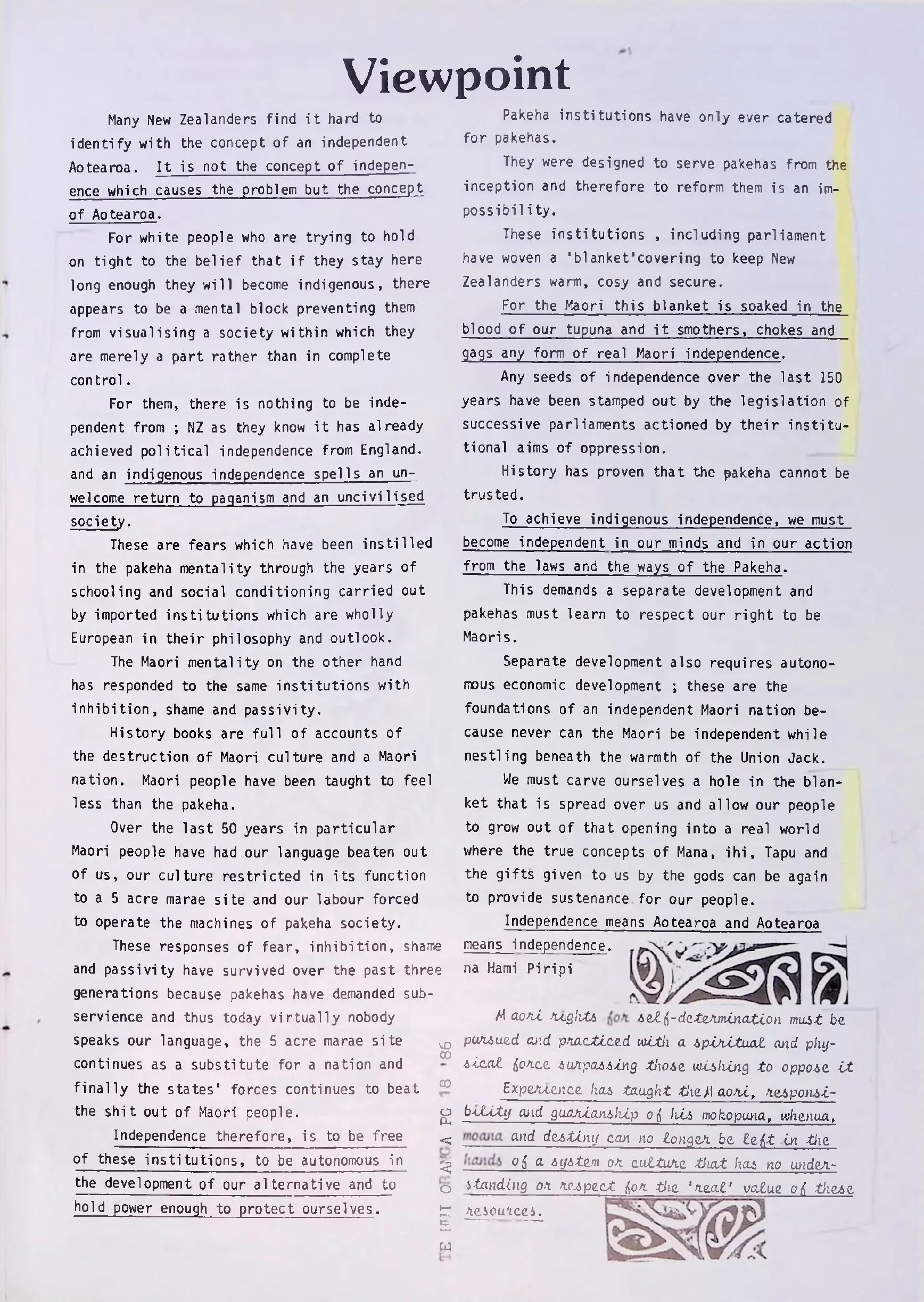TE HUI ORANGA O TE MOANA NUI A KIWA
A meeting for the wellbeing of our ocean. An intergenerational movement for Pacific solidarity from Aotearoa.
After 40 years since its first iteration, Te Kuaka organisers revived Te Hui Oranga o te Moana nui a Kiwa, bringing ten representatives from across the Pacific to Aotearoa to discuss issues affecting our shared ocean.
It was an energetic week of workshopping, listening to stories of organising, building power and collective resistance, from activists all over Te Moana Nui a Kiwa. Before the weekend programme, we welcomed manuhiri with a tour around the region, including with a visit to Ihumātao, and a trip to learn about the whakapapa of the land struggles in Whāingaroa.
Thank you to everyone who made this event, two years in the making, a huge success!
Aotearoa must again find a voice on issues that concern us, as peoples of the ocean, in the knowledge that our regional environment is our heritage, the foundation of our unique cultures, and our only basis for a liberated future. Manuhiri/Guest speakers who presented at the 2024 conference weekend include Epeli Lesuma, Joy Lehuanani Enomoto, Hinamoeura Morgant-Cross, Reverend Billy Wetewea, and Sheila Babauta.
The Declaration of Whāingaroa
Our manuhiri also produced and presented the Whāingaroa Declaration (which you can read here), calling for renewed solidarity from Aotearoa towards decolonisation, demilitarisation and ecological justice. Watch the presentation of it below (big thanks to Te Rangikaiwhiria Kemara for filming and editing this video).
About Te Hui Oranga 2024
Te Hui Oranga o te Moana nui a Kiwa 2024 will bring Pacific activists together with movement leaders and organisers in Aotearoa to build regional awareness and address threats to our ocean.
The Declaration of Whāingaroa
In October 2024, Te Hui Oranga o te Moana nui a Kiwa brought ten representatives from across the Pacific to Aotearoa to discuss issues affecting our shared ocean. They produced the Whāingaroa Declaration, calling for renewed solidarity from Aotearoa towards decolonisation, demilitarisation and ecological justice.
A History of Te Hui Oranga
In 1982, PPANAC held the first Te Hui Oranga o Te Moananui a Kiwa: ‘A hui for those concerned about the wellbeing of the Pacific’.
Ōtepoti Declaration
By the Indigenous Caucus of the Nuclear Connections Across Oceania Conference.
Intergenerational Kōrero & community archiving
“We have a history of superficial alliances and broken treaties. Our past is our present and our future. The nuclear bomb comes from the white past. Any joint action must be determined from recognising this reality.”
Learn from our movement elders
“All the nuclear extractions and testing took place on Indigenous lands and the nuclear powers were cold and calculated when they deemed Indigenous lands and lives worthless and disposable. For many of the Pacific nations they felt the only way to be safe from the nuclear colonial threat was to be independent from foreign powers who subjected them to this terror.”














































